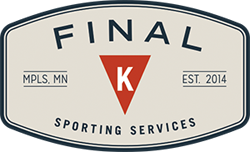Practice Makes Perfect
By Kris Swarthout USAT Level II Coach
I can still hear it now, way back in the cobwebs of my brain, all those adults who told me as a kid “practice makes perfect.” Whether it was my squirt hockey coach or my mom, they were always drilling this theory into my head. I didn’t want any part of it at the time, but now, looking back, I think they were absolutely correct.
We are getting close to our big race, and with that many issues start to pop into an athletes head; what should I eat, what should I wear, where should I park, when should I get up, etc. I can tell you with experience, race day is no time to try and answer these questions. It is the weeks before the big show that you need to start checking these questions off.
First things first, start to write down these questions as they come into your head. Keep this list close to you; you never know when inspiration will strike. After you have your list of questions, start searching for some answers. Ask your friends, your coach, your local tri store owner, who ever, just ask. Make sure you don’t take only one person’s opinion either, no body knows all the answers, well maybe accept me….no, just kidding. Start to see where people give the same advice and put these tidbits of wisdom in your mental bank. Research the weather history for the race and then plan for both extremes, drive to the race site and figure our where the prime parking spots are and also where some back up locations might be. There is nothing better than cruising into a race area and parking with confidence. A good tip from my wife would be “dare to go to the front”.
As far as more race/training specific questions go, start to really think about what you are going to eat the day before, the morning of, during and after your race. A good race starts with a good dinner; eat early enough so you have time to start digesting before bed. Don’t pig out, but don’t eat too little. Focus on good carbohydrates and plenty of hydration. Make sure to take in some sodium also if it is going to be hot the next day. For breakfast, eat about three hours before the gun goes off. This is going to take some research. Some races, like Lifetime Fitness, have a time trial style start where athletes go off in short intervals. This means the pros may start at 8am, but you won’t get to see the water until 10am. If this is the case, plan to eat something at the race site once you arrive. Whatever your start time is, practice eating for those scenarios. You also need to plan on what to eat during your race and after. For short races, you can legitimately get by on only energy gels, sports drink and water. For longer races, over five hours, you should begin thinking about eating some solid foods on the bike. After your race, focus on eating a solid meal. The post race hot dogs and all the other free stuff is tempting, but focus on good solid food to refuel. Don’t forget to throw in a treat for completing your big race also, a Blizzard is always my favorite.
If you live close to your race site, take the opportunity to practice there. Swim in the morning in the lake, bike the roads you will be racing on and run the route. If you can, join a training group that trains at or near the course (hint, Lifetime has a 5 week training class that practices at the race site, ask your Activities Director about this). Nothing prepares you better mentally than knowledge of the course. Some things to take note of; if you are practicing at Lake Nokomis for the Lifetime Fitness Triathlon, do not swim across the lake to the far beach as your race preparation. The Minneapolis Park Police will issue you a citation and you will have to pay a fine for swimming outside the posted area. This may sound silly, but it is for the overall safety of the public. While you are swimming think about where the sun is and how it will affect your sighting on race day. Think about mirrored goggles. They will help take the glare down from the sun, and you will also look like a State Trooper in the water.
The list of ways to prepare are virtually endless. The key is to hit the big ones, nutrition, training and race course familiarization. If you invest the extra time into these areas you are well on your way to have your best race, after all, practice makes perfect.
Happy Training,
Coach Kris
